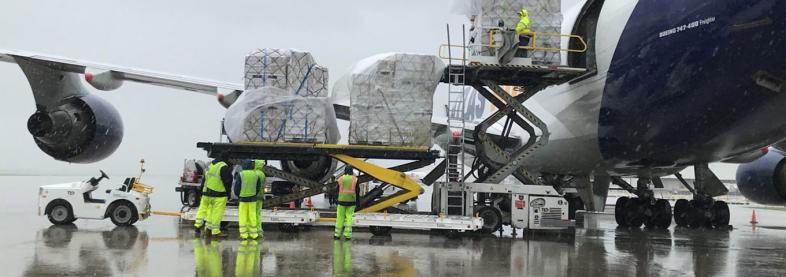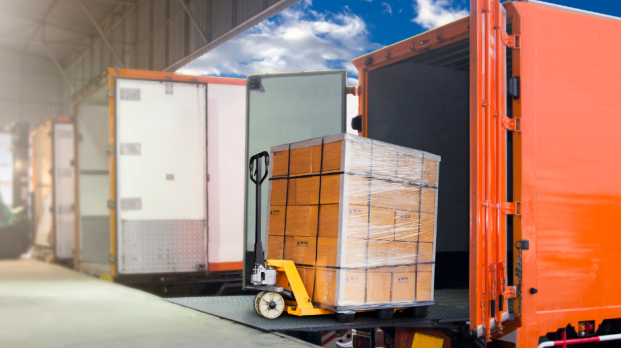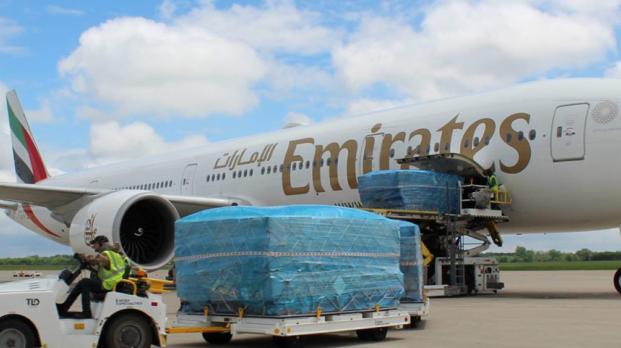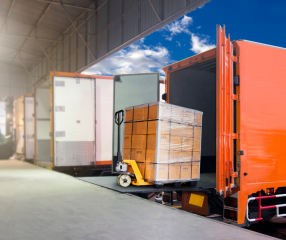
This article was originally written by Eric Kulisch for FreightWaves. You can find the original article here.
Secondary airports geared toward cargo are proving their value during the coronavirus pandemic as a faster alternative for delivering goods.
Airports outside major metro areas have always had a speed advantage over international passenger gateways such as Chicago O’Hare and New York’s JFK airport. An onslaught of freighter aircraft full of medical supplies for the COVID response has magnified congestion at those hubs and forced shippers to consider other options.
Good infrastructure, customer service, longer operating hours and priority clearance from customs authorities make it easier to pick up inbound shipments at second-tier airports, freight transportation specialists say.
Rickenbacker International Airport outside Columbus, Ohio, exemplifies the cargo-centric approach. The airport authority services parked freighters to expedite loading and unloading, or airlines can self-handle cargo. Several freight forwarders have airside cargo terminals, giving them direct control over their freight compared to using a third-party for disassembling and preparing loads for pick up.
For other logistics companies, pallets get dropped at a privately operated warehouse and go straight through to their trucks soon after aircraft arrive.
Cargo is king
"We’re able to have freight broken down off an aircraft within six hours of wheels down as opposed to having to wait anywhere between 48 hours and four days to pick up our freight from the airline’s container freight station in Chicago or JFK. It’s a significant difference from a speed perspective," said Evan Rosen, president of the Americas for Sri Lanka-based Expo Freight Logistics, which has a 150,000-square-foot warehouse about a mile away. "You're going to have at least a 24-hour difference even during the best of times." "
Rickenbacker, a former Army air base with 12,000-foot runways surrounded by distribution centers for retailers such Eddie Bauer, Lululemon and Abercrombie & Fitch, saw regular flights full of apparel dry up when the novel coronavirus broke out in China and manufacturing there shut down. The gap has been filled by a heavy stream of unscheduled, all-cargo charter planes delivering medical relief supplies, including transport purchased by the Federal Emergency Management Agency under Project Airbridge.
The COVID pandemic is showcasing Rickenbacker’s capabilities and opening the door to potential future business, said Bryan Schreiber, manager of air cargo business development.
“Like with the West Coast port strike in 2015, this crisis provides an opportunity for exposure to new companies that we haven’t done [much] business with thus far,” he said in a phone interview. “We are seeing some large global freight forwarders that haven’t used Rickenbacker in a gigantic way now chartering whole aircraft into Columbus because they’re finding it easier to get the freight on the road to final destinations.”
Some of those charter flights are passenger planes that airlines temporarily converted to cargo operations after grounding most passenger flights. Schreiber said on the June 26 episode of FreightWaves’ podcast “What the Truck?” that Rickenbacker has received about 30 quasi-freighters, some with the seats removed and others with boxes strapped into the seats, that originally would have gone to O’Hare.
Rockford rocks
More forwarders are also discovering Rockford International Airport (RFD), about an hour’s drive northwest of Chicago. Senator International, based in Hamburg, Germany, recently began weekly self-controlled flights from Frankfurt-Hahn Airport to RFD subchartered through Magma Aviation, which manages a fleet of four 747-400 freighters wet leased from several aircraft operators.
The first Senator flight landed at RFD June 28 with 67 tons of cargo, including two aircraft engines, according to a company news release. Senator International also operates dedicated charter flights to Greenville-Spartanburg Airport in South Carolina as an alternative to Atlanta, the largest passenger airport in the world.
“I expect to see more forwarders and airlines take advantage of our no-congestion, low-cost, high-efficiency airport within the coming months,” said Ken Ryan, RFD’s director of cargo business development. “It simply makes sense.”
RFD also handled several Project Airbridge flights.
During the first quarter, more than 625 million pounds of personal protective equipment and other goods crossed the tarmac at RFD, a 30% increase over the same period in 2019, according to airport authority figures. The volume was equivalent to the amount normally handled during the peak holiday season at the end of the year.
RFD achieved record volumes in 2019, despite a down year for air cargo overall, spurred in large part by the continued growth of e-commerce traffic from Amazon and UPS. Last fall, it celebrated the completion of a $12 million cargo terminal expansion to accommodate Amazon Air.
Ryan said the airport plans to begin construction by month’s end of a 90,000-square foot cargo building to be occupied by a major freight forwarder running its own scheduled aircraft. The $10 million project is expected to be completed by next spring.
Asked if the company is Senator, he said, “I can’t confirm that.”
Kaunas cargo
Cargo-friendly airports are also busy this year outside the U.S. Chicago-based SEKO Logistics is a heavy user of the airport in Kaunus, Lithuania. During the height of the COVID pandemic in Europe, it chartered many all-cargo flights with personal protective equipment through Kaunus instead of major airports. Now, the company is using the Baltic airport for regular airfreight clients as economies reopen, said Brian Bourke, the company’s chief growth officer.
Goods are put on trucks for onward distribution in Europe, and in some cases go on flights to London.
“It just provides us more options, more flexibility and that’s what people really need right now,” Bourke said. “It’s quicker, it’s more efficient. They’re built for it, so there’s not going to be any delays and it’s price competitive.
“It’s a great entry point into the European Union.”
East Midlands Airport, with the largest dedicated cargo facilities in the U.K., has also been busy with freighter activity this year. About 60% of its scheduled flights continued to operate at a time when most airports in Europe were devoid of traffic. The airport authority says cargo aircraft movements increased with the shift of ad-hoc flights from other airports that closed at night after airlines shut down most operations, which also reduced available cargo capacity.



